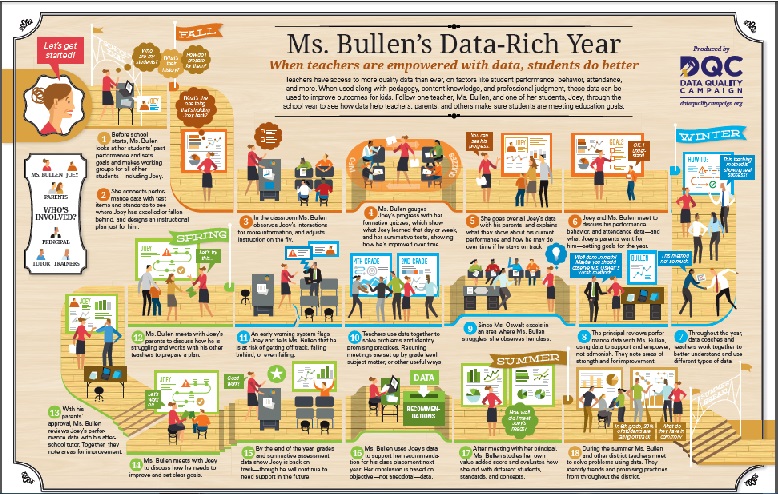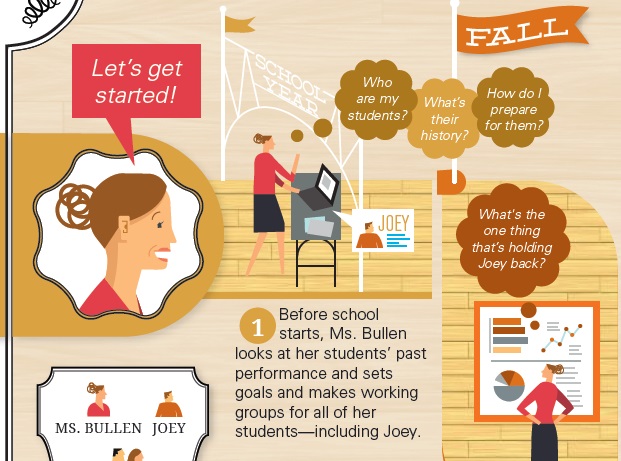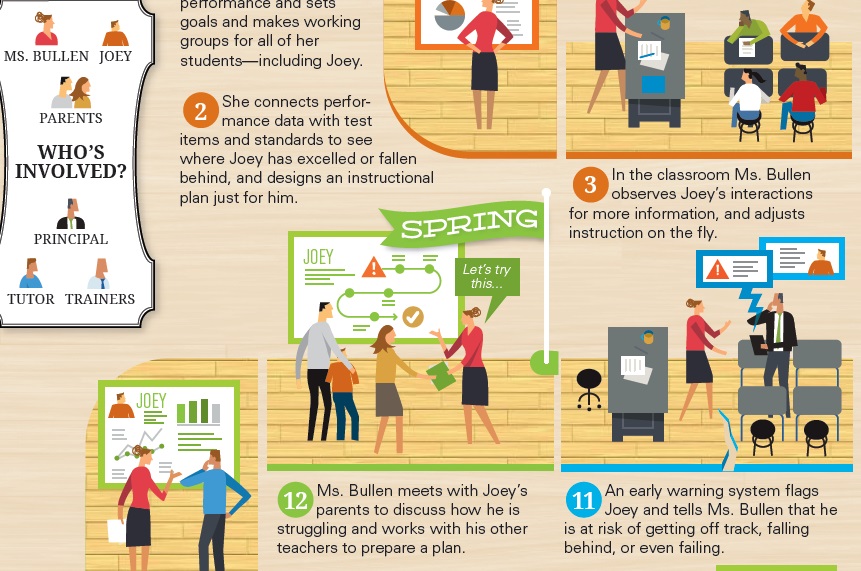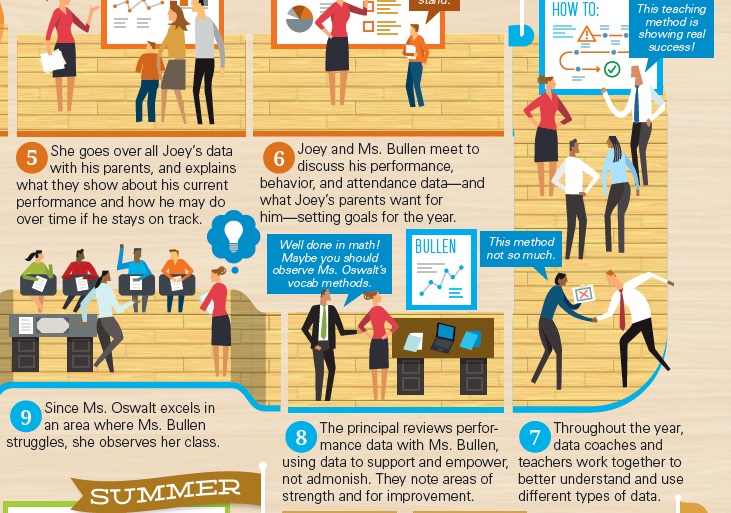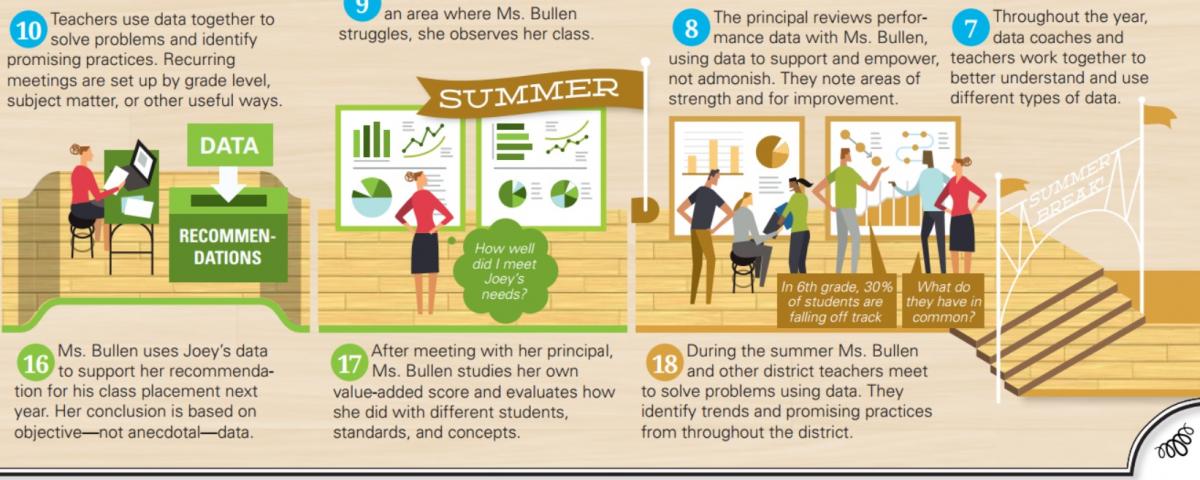 I hate to be difficult.
I hate to be difficult.
Actually, that’s not true – I enjoy being difficult sometimes. It’s how I learn, and how I try to force others to acknowledge problems they might not otherwise address, or clarify my own thinking regarding issues I find important. In this case, I’m very much hoping those more insightful than me will explain why I’m completely and totally mistaken.
Because on this one, I don’t like what I’m about to say. It runs against my libertarian ideals. Worse, it’s one more thing likely to annoy the people I most admire in the education blogosphere, some of who have been quite decent to me even though I’m a bit player at best.
I’m not sure “local standards” are a good idea for public education.
To be sure, nationalized tests and oppressive curriculum requirements are a disaster. Forget Common Core – ANY standardization of what every child in every situation everywhere must know and be able to do as measured by bubble fillinnery, based on their chronological grouping is, well… insane. In a “you’re a very bad man” kind of way.
State requirements aren’t much better, at least around here. They flip and they flop and they still come with all sorts of stupid tests which crush anything positive about public schooling. They make us hate our jobs and they make kids hate school, all while accomplishing nothing – since the results aren’t actually used to fix or change anything.
So of course the only remaining alternative is to let local districts, local parents, local school boards, based on local circumstances, decide what their students should and shouldn’t study, and how success will be measured.
In some cases, this would be wonderful. Perhaps in many cases.
 But while I love my state, rural Oklahoma is full of districts who don’t much cotton to them big city ideals. I don’t want to burst into a musical number from Tatooine, The Musical (“Beyond Uncle Owen’s Moisture Farm” is my personal favorite) but there are numerous districts where the toughest thing about teaching high school is convincing families there’s anything out there bigger than the local poultry processing plant or Assistant Manager at Dollar General.
But while I love my state, rural Oklahoma is full of districts who don’t much cotton to them big city ideals. I don’t want to burst into a musical number from Tatooine, The Musical (“Beyond Uncle Owen’s Moisture Farm” is my personal favorite) but there are numerous districts where the toughest thing about teaching high school is convincing families there’s anything out there bigger than the local poultry processing plant or Assistant Manager at Dollar General.
I’m not one to argue that every child in every situation absolutely MUST pursue a doctoral degree before fixing air conditioners for a living, but I can’t abide the image of thousands of Oklahoma teens stuck hanging out at the Quikie Mart eating hot lamp chicken until their prowess at The Last Starfighter or a dancing Kevin Bacon frees them from the backwater morass.
Local standards may not aspire to be much more than local. And you can’t become what you can’t see.
I love my state, but Oklahoma voters – the same ones I presume would be helping to set ‘local standards’ in their districts – keep electing Representatives like John Bennett and Sally Kern and Senators like Josh Brecheen.
Senator Josh Brecheen, of course, is the man who recently cited the Old Testament of the Bible – specifically a passage suggesting that those outside the faith be hunted down and killed with swords – to support his opposition to Common Core. We really must get him together with Representative John Bennett who is currently on his “Muslims are all Sleeper Cells” speaking tour condemning Islam – any form, any practice, any believer thereof. His reason? The Quran demands the deaths of non-believers. You know, like the Bible.
 Kern is most known for her crusade against gay people, who are apparently much like Bennett’s terrorists. She uses her background as an educator to explain that she’s just keeping it simple for folks, explaining it this way. In her defense, she doesn’t much like blacks or women (?!?) either. Because so many disagree with her, and are in fact horrified by her remarks, she’s also the victim of the worst sorts of persecution.
Kern is most known for her crusade against gay people, who are apparently much like Bennett’s terrorists. She uses her background as an educator to explain that she’s just keeping it simple for folks, explaining it this way. In her defense, she doesn’t much like blacks or women (?!?) either. Because so many disagree with her, and are in fact horrified by her remarks, she’s also the victim of the worst sorts of persecution.
“It just broke my heart because so often what they were doing, they weren’t just stoning me, they were stoning and desecrating the God that I love…
There was just so much hate, they accuse me of being hateful, and I never once said anything hateful. Such hate expressed against the Lord and against his word and then the way they, I mean these people, I believe these people, I believe scripture teaches this, they’re deceived and to me the real hate is from those people who say, ‘you’re born this way and you can’t change, deal with it’…”
In other words, because not everyone accepts her bizarre hate speech, she is the real victim. Well, her and God – who in Kern’s theology apparently has many of the same attributes and insecurities of Tinkerbell. New whine in old skins.
This is ‘Merica and they can believe as they like, although I question political leaders using their position in government to attack segments of our own populace. Kerr assumes blacks are naturally criminals because they’re lazy, but she’s not executing them in broad daylight for not walking on the sidewalk, so… um… I guess it’s all relative? And I have friends who are not particularly fond of Islam no matter what its trappings and more who just don’t buy gay as a morally neutral issue. That’s fine – whatever.
But those friends aren’t setting the curriculum for my local public school. Xenophobia may be there in practice, but it’s not codified in the official standards for all to follow. Gay-bashing may occur verbally or even physically, but it’s not generally promoted by the authority at the front of the room or sitting at the big desk down front. On paper, at least, we’re trying to function in a global society. On paper, at least, we’re trying to look beyond the pissy Presbyterian next door and realize that right or wrong, we’re just going to have to deal with the “others.”
Local standards would roll this back. I’m not trying to be conspiratorial, but I see who these people elect. Repeatedly.
 It’s already problematic in many rural areas to cover the basics of various faiths as part of World Cultures class, or to explain Evolution even as a ‘theory’. I recently attended a workshop with a lady in a nearby state whose head was exploding because Noah’s flood was the mandated correct response in World History class covering major population movements.
It’s already problematic in many rural areas to cover the basics of various faiths as part of World Cultures class, or to explain Evolution even as a ‘theory’. I recently attended a workshop with a lady in a nearby state whose head was exploding because Noah’s flood was the mandated correct response in World History class covering major population movements.
Nothing against Noah or Noah’s god – but is that really so much less onerous than Common Core’s suggestion that written arguments must be supported with facts and reasoning?
And that’s not even getting into novels or sex education or racially integrated cheerleading squads – stuff that really sets folks off ‘round these parts.
Given the recent kerfuffle over curriculums challenging the narrative of America as the infallible bulwark of justice and freedom-eagles, can you imagine the approved versions of history in areas still angrily downing 32 oz. Keystones, listening to Lynyrd Skynyrd, and cursing the War of Northern Aggression? We can’t stop Donald Trump from arguing that Obama’s not a citizen, but that doesn’t mean we have to make “Kenya” the only acceptable answer on the multiple choice quiz, either.
I hate federal government programs and demands. I’m not a huge fan of the Department of Education or most other bureaucratic leviathans who feed on the nectar of paycheck deductions and red tape. But every time we’ve left important decisions up to local control in the past century, things get pretty weird.
Outside standards don’t guarantee anything, and we can’t write enough rules to force well-rounded, questioning young people to magically appear out of every high school. But surely we can’t just smile and trust that the same people who’ve got us to where we are today can will somehow burst forth in wise, long-term thinking about tomorrow.

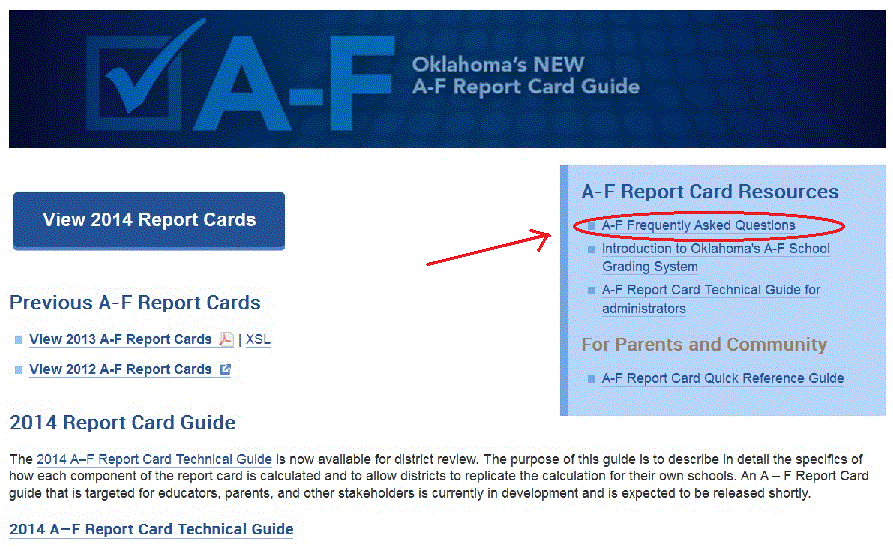
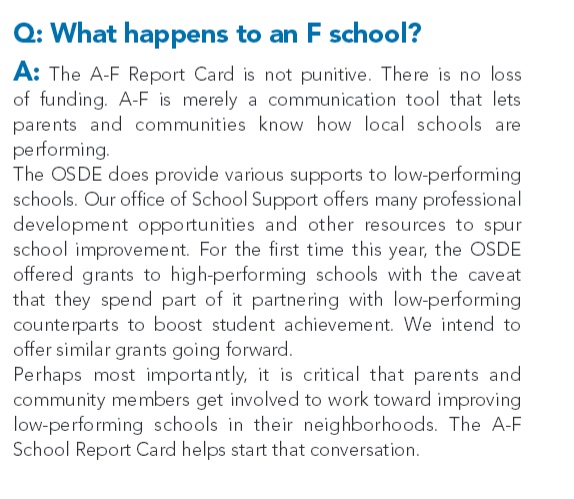
 6. Can you tell the ‘spur’ thing bugs me? You spur a horse that’s not trying very hard or moving very fast. You spur a horse because horses are too stupid to know which way they’re supposed to go on their own. You dig your metal into its flank and keep your bit in its mouth so it will remain compliant – an extension of your own purposes. Spurring suggests schools and teachers get F’s because they’re just not trying very hard. They’re meandering, munching some grass, peeing a long time – just standing there until the SDE comes to do some spurrin’. Giddy-up go, Ms. Hernandez – giddy-up, go! Because you know what grade a horse really wants? A neighhhhh…
6. Can you tell the ‘spur’ thing bugs me? You spur a horse that’s not trying very hard or moving very fast. You spur a horse because horses are too stupid to know which way they’re supposed to go on their own. You dig your metal into its flank and keep your bit in its mouth so it will remain compliant – an extension of your own purposes. Spurring suggests schools and teachers get F’s because they’re just not trying very hard. They’re meandering, munching some grass, peeing a long time – just standing there until the SDE comes to do some spurrin’. Giddy-up go, Ms. Hernandez – giddy-up, go! Because you know what grade a horse really wants? A neighhhhh…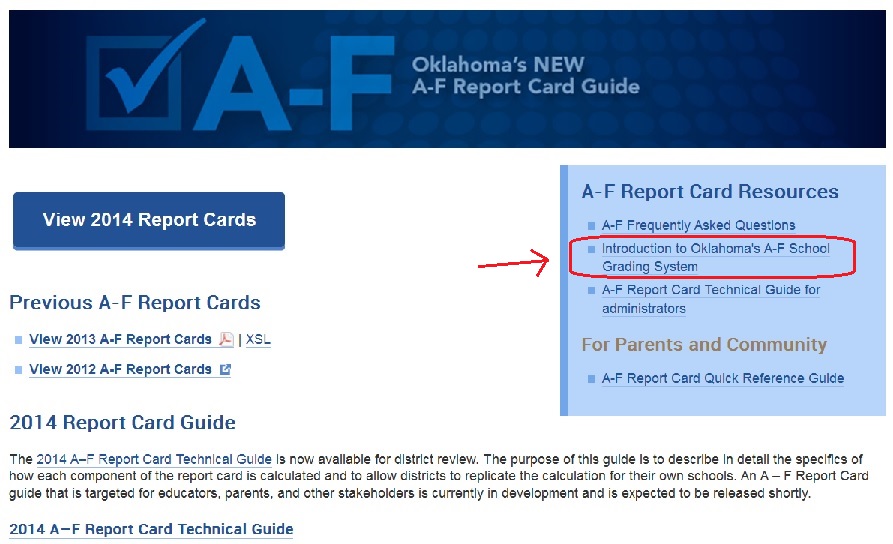

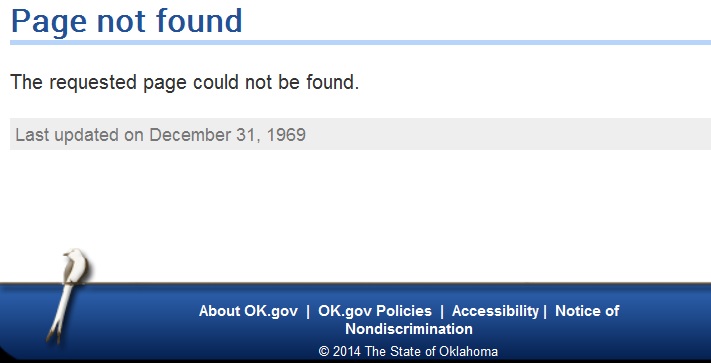
 The State of Oklahoma, like many others, is determined to assign numbers and letters to the schools and teachers within its purview. Like the standardized testing of students on which many of these numbers and letters are based, the conviction seems to be that if you just keep pretending to measure things in ridiculously oversimplified ways designed to guarantee widespread failure, you’re “reforming” the system and calling forth a brighter future for all. This is analogous to – actually, never mind the analogy. It’s just stupid.
The State of Oklahoma, like many others, is determined to assign numbers and letters to the schools and teachers within its purview. Like the standardized testing of students on which many of these numbers and letters are based, the conviction seems to be that if you just keep pretending to measure things in ridiculously oversimplified ways designed to guarantee widespread failure, you’re “reforming” the system and calling forth a brighter future for all. This is analogous to – actually, never mind the analogy. It’s just stupid.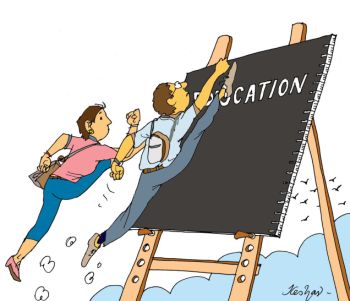 Summative Assessment is the other category. It’s the ‘BIG TEST’ at the end of a unit or a semester. These attempt to document what students “walk away with” in knowledge and skills. The data can identify strengths and weaknesses of individual teachers so we can help each other improve, or help compare classes from year to year. For students it’s generally the finish line, for better or worse – here’s how you did, now off with thee.
Summative Assessment is the other category. It’s the ‘BIG TEST’ at the end of a unit or a semester. These attempt to document what students “walk away with” in knowledge and skills. The data can identify strengths and weaknesses of individual teachers so we can help each other improve, or help compare classes from year to year. For students it’s generally the finish line, for better or worse – here’s how you did, now off with thee.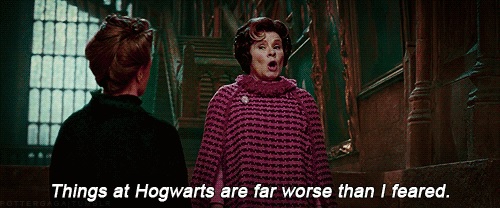 The A-F Report Card given by the State of Oklahoma to its public schools each year does none of the things assessment is supposed to do. It provides no support, and intentionally limits the data it is willing to consider. There are no adjustments on the part of the state based on how well a given school is doing, and no conversation regarding options for improvement. It’s not even measuring most of the things we claim are most valuable to us. It is merely calculated and published, and each year more and more schools are sent to sit in the corner with their ‘dunce’ caps on.
The A-F Report Card given by the State of Oklahoma to its public schools each year does none of the things assessment is supposed to do. It provides no support, and intentionally limits the data it is willing to consider. There are no adjustments on the part of the state based on how well a given school is doing, and no conversation regarding options for improvement. It’s not even measuring most of the things we claim are most valuable to us. It is merely calculated and published, and each year more and more schools are sent to sit in the corner with their ‘dunce’ caps on. You ever across something while browsing online, and wish you hadn’t? I believe it was
You ever across something while browsing online, and wish you hadn’t? I believe it was 